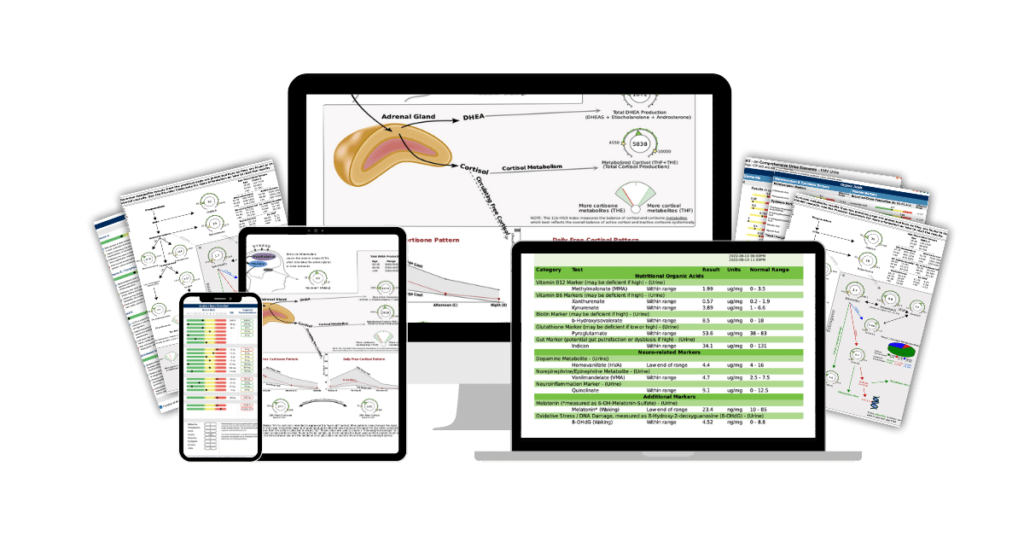
Feeling tired but wired…sleepless nights…trouble waking up?
Any of these can be signs of circadian disruption—meaning your external daily rhythms are out of sync with your internal body clock.
We can correct the problem, but first we need to know the cause, right?
Most people know that working nights will mess with your body clock, but here are 5 other causes of circadian disruption you may not know:
1️⃣ Sleeping In On Weekends
Sorry to be the bearer of bad news, but if you wake to an alarm 5 days a week and sleep until noon on the other 2, your body feels like you’re constantly traveling between time zones. It’s called social jet lag and can do more harm than good.
2️⃣ Being a Night Owl
Lots of people think being a night owl is just a personality trait like anything else. Unfortunately, studies show that night owls are more likely to experience circadian disruption and are at a higher risk for some conditions, like diabetes.

3️⃣ Poor Diet
Both the types of food you choose and the timing of eating can alter the patterns of gut microbiota, which then influence circadian clocks in the gut. Digestion and blood sugar regulation follow a daily rhythm, so your eating patterns should too.
4️⃣ Alcohol Consumption
Chronic alcohol consumption alters the timing of the liver clock and causes a mismatch with your central circadian rhythm. This can happen with even small amounts of alcohol when combined with other variables, like working at night.
5️⃣ Working Indoors
The most powerful external influence on our body clocks is the 24-hour light-dark cycle. If you work in artificial light, your body misses out on the benefits of full-spectrum natural light. Solutions could include taking outdoor breaks or investing in a light-therapy lamp.
The bottom line? If you struggle with your energy level or sleep, there’s a chance circadian disruption might be at play.

Test Not Guess: Understanding Your Circadian Rhythm Through Adrenal Testing
Identifying the causes of circadian disruption is crucial, but employing targeted interventions based on personalized assessment can yield more effective results. Adrenal testing offers valuable insights into your individual circadian rhythm, allowing for tailored interventions to optimize your sleep-wake cycle and overall health. Here are five strategies to navigate and address circadian disruption using adrenal testing:
🌞 Urinary Cortisol Monitoring: Urinary cortisol testing provides a snapshot of your cortisol levels throughout the day, reflecting your body’s natural circadian rhythm. By analyzing cortisol patterns, you can identify deviations from the norm that may indicate circadian dysregulation. Understanding these fluctuations enables you to implement targeted interventions to rebalance your cortisol secretion and improve sleep quality.
💊 DHEA-S Assessment: DHEA-S (dehydroepiandrosterone sulfate) is another hormone produced by the adrenal glands that follows a circadian rhythm. Monitoring DHEA-S levels can offer insights into adrenal function and overall circadian health. Abnormal DHEA-S patterns may signal underlying issues contributing to circadian disruption, such as adrenal fatigue or dysfunction.
🌅 Cortisol Awakening Response (CAR): The cortisol awakening response (CAR) measures the rise in cortisol levels upon waking, reflecting the body’s natural response to the transition from sleep to wakefulness. Assessing CAR can help identify abnormalities in the cortisol awakening response, which may indicate disturbances in circadian rhythm and sleep-wake cycles. Targeted interventions can then be implemented to restore healthy CAR patterns and promote better sleep onset and wakefulness.
🌌 Melatonin Assessment: While primarily synthesized by the pineal gland, melatonin secretion can be influenced by adrenal function and circadian rhythm. Adrenal testing may include evaluation of melatonin levels to assess overall circadian health and sleep quality. Balancing melatonin secretion in alignment with natural light-dark cycles is essential for maintaining a synchronized circadian rhythm and promoting restful sleep.
🧘 Stress Hormone Balance: Adrenal testing provides insights into the balance between stress hormones such as cortisol and DHEA-S, offering valuable information about the body’s ability to adapt to stressors and maintain circadian stability. Imbalances in stress hormone levels can disrupt circadian rhythm and contribute to sleep disturbances and fatigue. By addressing underlying stressors and supporting adrenal health, you can restore balance to your circadian system and improve overall well-being.
Take charge of your circadian health today. Contact the office to order your adrenal testing kit and take the first step toward understanding and optimizing your sleep-wake cycle.








